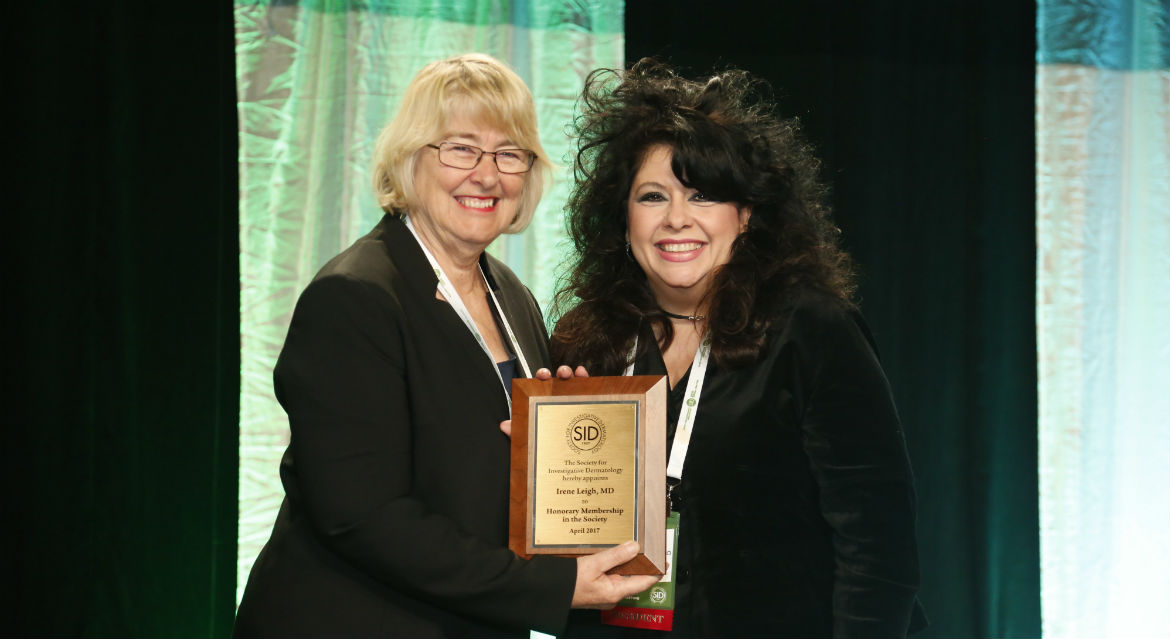Awards recognise impact of skin disease research at Dundee
Published On Mon 22 May 2017 by Roddy Isles

The international impact of dermatological research from the University of Dundee has been recognised by two major awards to Irene Leigh CBE, Professor of Cellular and Molecular Medicine.
Professor Leigh has been awarded the British Society of Investigative Dermatology Medal, the highest honour in UK dermatological research.
She has also been given the highest honour of the Society of Investigative Dermatology, the leading US research society at their recent meeting in Portland, Oregon.
The awards recognise contributions to research in skin cancer, genetic disease and tissue engineering. Professor Leigh’s group, based in the Jacqui Wood Centre at the University’s School of Medicine and including scientists Professor Charlotte Proby and Dr Gareth Inman, has made major advances in understanding the driver mutations causing squamous cell cancers of the skin.
“I am honoured to have received these awards from the leading societies in the field of dermatology in both the UK and the USA,” said Professor Leigh, who was previously a Vice-Principal of the University and Director of the Cancer Research UK Skin Tumour Laboratory.
“This is very strong recognition of the contributions that our work in Dundee has made to the field of skin cancer research internationally.”
The research from Professor Leigh’s concentrates on squamous cell carcinoma (SCC), an uncontrolled growth of cancer cells in the outer layers of the skin. SCCs grow as hard lumps or ulcers, which invade deeply into the skin and can spread to the rest of the body.
In many countries, including Scotland, it is now the most common form of skin cancer that is potentially deadly. More than 1 million cases of squamous cell carcinoma are diagnosed each year in the USA, while in the UK there are in excess of 55,000 cases a year. The incidence of this form of cancer has increased by around 200 percent in the past three decades.
“Understanding the genetic basis of these cancers will lead to better treatments, and the work we have done in Dundee is making a significant contribution to that,” said Professor Leigh. “However, there is much that people can do at a very basic level to protect themselves as the major cause is exposure to the harmful rays of the sun.
“Using `sun sense’ to avoid overexposure to the sun is a major factor in the prevention of this kind of skin disease.”
For media enquiries contact:
Roddy Isles
Head of Corporate Communications
University of Dundee
Nethergate, Dundee, DD1 4HN
Tel: +44 (0)1382 384910
Mobile: 07800 581902
Email: r.isles@dundee.ac.uk